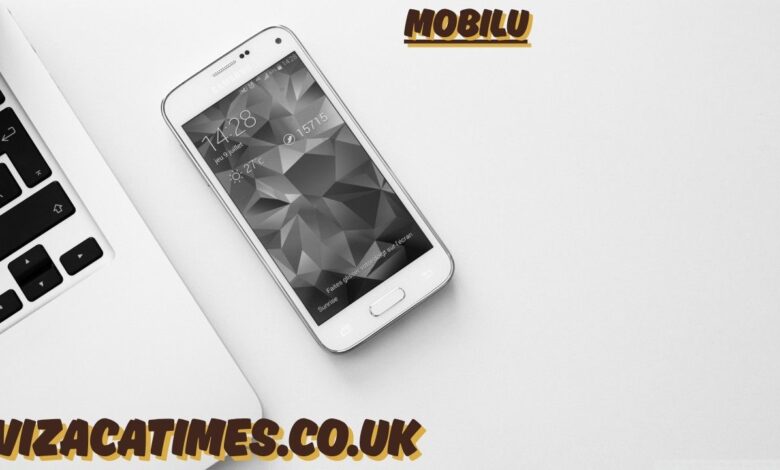Mobilu, ?? Everything You Need to Know About Mobilu: A Comprehensive Overview

Introduction to Mobilu, ??
When you hear the word mobilu, you may immediately associate it with technology, mobility, or possibly an innovative platform disrupting a specific industry. But what exactly is mobilu? Is it a software product? A brand? A new-age solution in the ever-growing digital ecosystem? This article dives deep into what mobilu might refer to, explores its possible implications, applications, and meaning, and examines how this term can be significant across various domains—from mobile technology to smart solutions and digital transformation platforms.
In this comprehensive breakdown of mobilu, ??, we’ll cover a wide array of possibilities and interpretations surrounding the term, aiming to give a thorough understanding for readers seeking clarity on this intriguing keyword.
The Origin and Interpretation of “Mobilu”

Mobilu appears to be a stylized word derived from the Latin root mobilis, meaning “movable” or “capable of movement.” In today’s tech-driven world, anything prefixed or suffixed with “mobil-” often implies motion, mobile functionality, or responsiveness. Mobilu could be understood as an entity or concept emphasizing mobility—either in a literal sense (like mobile apps or transport) or metaphorical (like flexible business models, digital platforms, or smart innovations).
Given its open-ended nature, mobilu?? becomes not just a question, but an invitation to explore a wide range of ideas around mobile ecosystems, smart technology, and responsive platforms.
Mobilu in the Context of Mobile Applications
If we consider mobilu in the mobile application industry, the possibilities are abundant. It could be:
- A mobile application development platform offering low-code or no-code development tools.
- A business mobility suite for enterprises looking to integrate workforce mobility, including cloud access, mobile dashboards, and on-the-go collaboration tools.
- A personal productivity app, providing features like scheduling, time tracking, and automation for busy professionals.
In all cases, the underlying idea would remain the same: mobilu stands for movement, efficiency, and accessibility in a digital format.
Mobilu as a Smart Business Solut

With the rise of digital transformation, many organizations are turning to platforms that unify their business needs. This is where mobilu could fit in as a:
- Digital transformation platform that allows businesses to migrate from paper-based processes to digital workflows.
- A customer engagement suite that helps companies manage interactions through mobile, web, and social platforms in one integrated interface.
- A data analytics solution providing mobile-accessible dashboards and real-time insights.
In this context, mobilu?? would signify curiosity about how companies can enhance agility and responsiveness using such a platform.
The Role of Mobilu in Remote Work and Enterprise Mobility
Remote work has become the norm across various sectors, and tools that support location-independent workflows are more valuable than ever. If mobilu is part of this trend, then it might focus on:
- Secure remote access to business applications.
- Collaboration tools that combine messaging, zideo, and task management.
- Mobile device management (MDM) systems that control how corporate data is accessed on employee devices.
Here, mobilu represents a solution at the core of modern workplace flexibility and efficiency.
Mobilu and Cloud Integration
Another compelling angle to explore is the connection between mobilu and cloud technology. Cloud platforms have revolutionized how data is stored, accessed, and managed. If mobilu leverages cloud computing, it could be offering:
- Cloud-native mobile services—where apps are built to scale across mobile devices using cloud architecture.
- Platform as a Service (PaaS) tailored for mobile app developers.
- Mobile backend services, like authentication, storage, and API gateways, delivered from the cloud.
This reinforces the idea of mobilu as a backbone of flexibility, accessibility, and integration in the cloud-first world.
Mobilu in the Field of Education and Training
If positioned within the learning and development space, mobilu might be an edtech solution, allowing institutions to offer:
- Mobile learning environments with accessible modules for students.
- Corporate training apps that deliver real-time lessons, assessments, and certifications on employees’ devices.
- Gamified learning experiences, enhancing engagement through mobile interactivity.
Thus, mobilu?? becomes a question that educators, trainers, and instructional designers might ask when looking for innovative solutions to engage learners in a modern way.
The Potential of Mobilu in Healthcare
Healthcare is another domain that thrives on mobility—think remote patient monitoring, digital prescriptions, or mobile access to health records. Mobilu in this context might stand for:
- A telehealth platform facilitating doctor-patient consultations via mobile.
- Patient management systems accessible by healthcare professionals on the move.
- Mobile diagnostic tools, used in rural or underserved locations to collect health data.
The term mobilu?? could hence reflect a growing interest in bridging healthcare gaps through smart, mobile-first solutions.
Mobilu in E-commerce and Retail
In retail and online business environments, the term mobilu might be associated with:
- Mobile commerce platforms, allowing seamless purchasing experiences on smartphones and tablets.
- Customer engagement tools, such as loyalty apps, personalized push notifications, and geofencing.
- Inventory and sales dashboards for business owners to track performance in real time.
This interpretation positions mobilu as an essential player in shaping modern shopping experiences.
Challenges Mobilu Might Face
Despite the many potentials, mobilu—whatever its exact nature—could face some core challenges:
- Data security and compliance, especially if dealing with enterprise or personal data.
- Cross-platform compatibility, to ensure seamless performance on Android, iOS, and web interfaces.
- User adoption, particularly in industries slow to embrace digital change.
Understanding these hurdles is important to answer the question: mobilu??—how effective is it in practical, real-world settings?
The Future of Mobilu: Trends to Watch
Whether mobilu is a digital product, a development framework, or a concept still in the making, the future points toward:
- Increased personalization using AI for tailored user experiences.
- 5G integration, offering faster speeds and lower latency for mobile platforms.
- Decentralized architecture, possibly involving blockchain to enhance security and transparency.
These trends suggest that mobilu could evolve into something more robust, intelligent, and secure over time.
Final Thoughts on Mobilu, ??
To sum up, mobilu—as vague or futuristic as it might sound—appears to encapsulate the essence of mobility-driven innovation. Whether in business, education, healthcare, or retail, mobilu can be interpreted as a platform, idea, or framework designed to enhance how we interact with technology on the move.
As we’ve explored in this detailed overview, mobilu?? isn’t just a question—it’s a launchpad for curiosity, innovation, and transformation.
Frequently Asked Questions (FAQs)
Q1: What does “mobilu” mean exactly?
A: The term appears to refer broadly to mobile-based or mobility-driven solutions, although its exact use may vary depending on the context—such as apps, platforms, or digital services.
Q2: Is Mobilu a company or product?
A: It’s possible. Without more specific information, mobilu could be a brand name for a mobile app, a tech company, or a cloud-based platform.
Q3: What industries could benefit from mobilu?
A: Virtually all modern industries—especially tech, education, healthcare, and retail—could see advantages in adopting a mobile-focused solution like mobilu.
Q4: How does mobilu differ from traditional mobile solutions?
A: If mobilu integrates AI, cloud, or cross-platform frameworks, it may offer more flexibility, scalability, and intelligence than older systems.
Q5: Can individuals use mobilu for personal productivity?
A: Yes, if mobilu includes features like time tracking, scheduling, or habit-building, it can be valuable for individual use.



